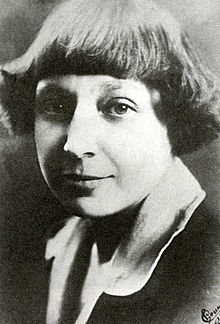Marina Tsvetaeva
Marina Ivanovna Tsvetaeva was a Russian and Soviet poet. Her work is considered among some of the greatest in twentieth century Russian literature. She lived through and wrote of the Russian Revolution of 1917 and the Moscow famine that followed it. In an attempt to save her daughter Irina from starvation, she placed her in a state orphanage in 1919, where she died of hunger. Tsvetaeva left Russia in 1922 and lived with her family in increasing poverty in Paris, Berlin and Prague before returning to Moscow in 1939. Her husband Sergei Efron and her daughter Ariadna Efron were arrested on espionage charges in 1941 and her husband was executed. Tsvetaeva committed suicide in 1941. As a lyrical poet, her passion and daring linguistic experimentation mark her as a striking chronicler of her times and the depths of the human condition.
Marina Tsvetaeva was born in Moscow, the daughter of Ivan Vladimirovich Tsvetaev, a professor of Fine Art at the University of Moscow, who later founded the Alexander III Museum . means color or flower. Tsvetaevas mother, Maria Alexandrovna Meyn, Ivans second wife, was a concert pianist, highly literate, with German and Polish ancestry. Growing up in considerable material comfort, Tsvetaeva would later come to identify herself with the Polish aristocracy.
Source: Wikipedia

